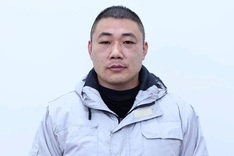Despite the full participation of private organisations in the education system, the country is still looking for a way of effectively running the system and make it a key economic sector.
 |
| A music class at Trung Vuong Primary and Secondary School, the first private school in the central province of Quang Tri. |
With the number of private schools and universities ballooning in Vietnam, an education market has been created. It, however, is not clearly seen as a market by the government and society.
In a recent survey on private equity investors conducted by auditing and consulting firm Grant Thornton Vietnam, education was ranked by respondents as the most attractive industry.
Education returned to the top place in the list of most positive sectors for investment in the biannual report "Private Equity in Vietnam – Investment Sentiment and Outlook," released last month. It replaced the retail sector, which led the previous survey.
Co-operation among educational centres and schools or universities in both State-run and private businesses is becoming more common.
This has brought huge benefits for both parties. Under this co-operation, universities, which take charge of management and grant qualifications, get 30 percent of the benefits, and the training centres take the rest for assuming the responsibility of training, offering places of learning, and hiring professors and teachers.
For example, the co-operation between a Ho Chi Minh City-based research centre in District 5 and a private university in the last four years will see 50 students graduating this year.
This business co-operation brings in around VND1.6 billion ($76,000) of yearly revenue from the 200 students studying there.
The net benefit, after deducting all the costs, is nearly VND1 billion ($47,000). The research centre is also trying to form a co-operation agreement with a university in Binh Duong Province which neighbours Ho Chi Minh City, to extend its business.
Grey area
This kind of business co-operation is becoming a breadwinner for State-run schools and bringing in great benefits for private ones.
According to figures from the Ho Chi Minh City Education and Training Department, there are 100 private high schools, colleges, 33 international training schools of all levels from kindergarten to high school, and more than 540 cultural centres in the country\'s biggest city.
The private schools account for more than 21 percent of the total number in Hanoi, attracting 11 percent of the total students.
There are 80 universities privately owned in the country, accounting for nearly 16 percent of the total number of undergraduate students.
The country targets to have private universities taking up to 40 percent of students by 2020.
The co-operation among local and international universities also exists in the State-owned system, running on school fees. School fee takes up 50 percent of the budget in State-run universities and almost 100 percent of that in private universities.
The Prime Minister\'s Decree 61, introduced in 2009, on the regulations of organisation and activities of private universities recognises the ownership of shareholders.
With educational organ-isations in Vietnam considered non-profit, the private schools and universities are running their business without being under the Corporate Law and are enjoying a favoured tax rate.
The shareholders of the private universities even get 25-30 percent of profit and can transfer their shares or withdraw their investment according to Corporate Law regulations.
The regulations on corporate disintegration are applied to financial and property settlement when these universities are divided into various units.
Six years ago, the Ministry of Education and Training announced that they would work out regulations on the administration and business of for-profit and non-profit universities.
The regulations are, however, still on paper. This has created a grey area in the financial activities of private universities, hindering the healthy development of the sector.
For this reason, despite the growing investment in private education, its quality is not better, or is even worse, than the State-owned.
The 2010 appraisal report by the National Assembly Standing Committee said many private universities had to plan for many years because of the shortage of land or rental sites.
They also lacked teachers and professors, and, thus, their education quality had not improved.
The report also included alarming figures showing that the number of guest teachers in private universities was high, sometimes double the host ones.
Because of the shortage, each teacher is forced to teach up to 1,000 classes a year, double or even triple the number of classes they are regulated to give.
Experts have said the Government does not has proper management of the privatised education sector, which is becoming a "super profitable"\' business market, according to the Sai Gon Economic Times newspaper.
The Government should distinguish between for-profit and non-profit educational organisations, which means the education "selling" market should be recognised.
The line between schools and universities that provide high-quality education that is not for profit and the ones that are for profit should be made clear, experts said.
The State should give its best support to non-profit education and let society judge the education quality of private schools and universities which make a profit on education.
The unclear recognition and status of the education market is making the purchase of fake diplomas and degrees more common.
The former Vice President, Nguyen Thi Binh, in her recent speech, said the country\'s education system should be reformed from the bottom up.




















